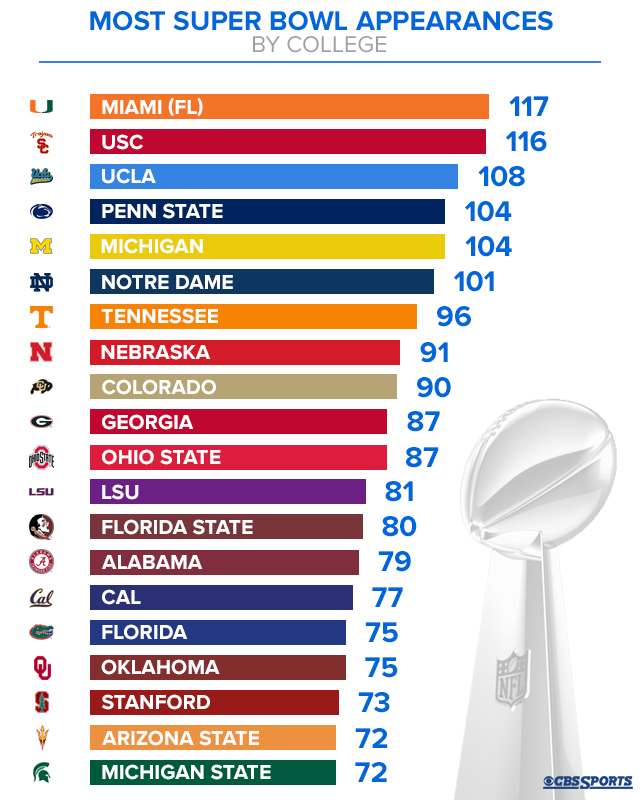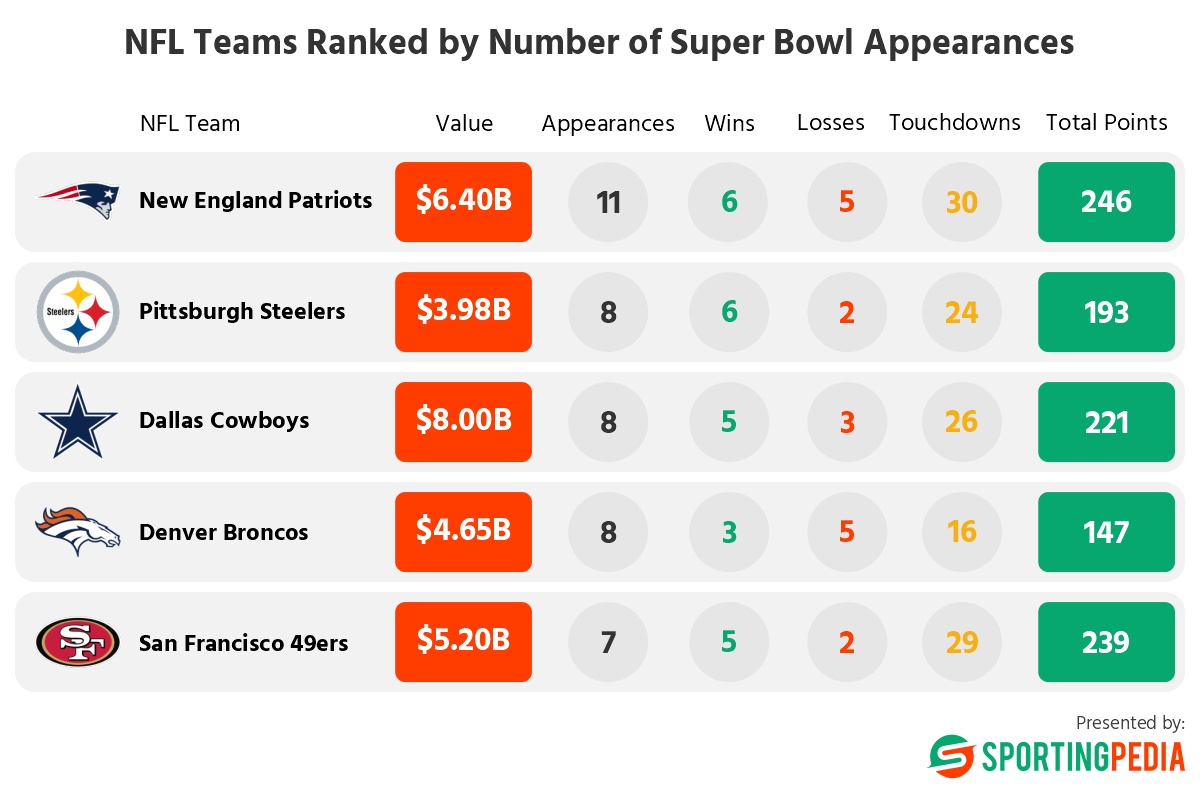Gallery
Photos from events, contest for the best costume, videos from master classes.
 |  |
 |  |
 |  |
 |  |
 |  |
 |  |
At the start of every NFL season, all 32 teams have the same goal: win the Super Bowl. While that goal is more realistic for some teams than others, every squad dreams of hoisting the Lombardi Trophy at the end of the season. However, only one team can turn that dream into reality each year. Minnesota Vikings (4) – appeared in Super Bowls IV, VIII, IX, and XI; they won the NFL Championship in 1969, the last year before the AFL–NFL merger, but failed to win the subsequent Super Bowl. Buffalo Bills (4) – XXV , XXVI , XXVII , and XXVIII ; in 1964 and 1965 , they won the last two AFL Championships before the first Super Bowl in Most Super Bowl wins by NFL team 1967-2024 Published by Christina Gough, Feb 12, 2024 The New England Patriots have won the Super Bowl a record six times, most recently Super Bowl LIII in February Super Bowl champions by year. 1967 Super Bowl (1): Green Bay Packers 35, Kansas City Chiefs 10 1968 Super Bowl (2): Green Bay Packers 33, Oakland Raiders 14 1969 Super Bowl (3): New York Jets 16 The Steelers had the most Super Bowl wins with six until a Patriots win in Super Bowl 53 moved Tom Brady and Co. into a tie for the most championships in NFL history. Now the 49ers have a chance Brady also has the most Super Bowl appearances of any player in NFL history, having competed for the championship 10 times in his career. His losses came at the hands of the New York Giants in Their first championship was a 39-20 drubbing of the Broncos on Jan. 25, 1987, with Phil Simms winning the Super Bowl MVP award. The Giants' most recent Super Bowl wins were in 2008 and 2012, when Brady has the most Super Bowl wins with seven and also has the most Super Bowl MVP awards with five. Brady is also the only player in NFL history to win a Super Bowl in three different decades. The New England Patriots and the Pittsburgh Steelers are tied for the most wins in Super Bowls, with 6 wins. Check out this article for a complete list of NFL teams with the most super bowl rings and more. Which NFL team has the most Super Bowl wins? Updated Oct. 18, 2024 1:08 p.m. ET Now, the Chiefs will try to complete the first-ever Super Bowl three-peat when they take on Reid's old team, the Philadelphia Eagles, in Super Bowl 59 in New Orleans. Reid, 66, owns the most wins Now, the Chiefs will try to complete the first-ever Super Bowl three-peat when they take on Reid's old team, the Philadelphia Eagles, in Super Bowl 59 in New Orleans.. Reid, 66, owns the most wins Now, the Chiefs will try to complete the first-ever Super Bowl three-peat when they take on Reid's old team, the Philadelphia Eagles, in Super Bowl 59 in New Orleans.. Reid, 66, owns the most wins The Super Bowl is the pinnacle of the NFL season, where two teams battle for the prestigious Vince Lombardi Trophy. Since its inception in 1967, the championship has been a stage for dynasties MORE SUPER BOWL 58: Commercials tracker | 25 best ads of all time. Back-to-back Super Bowl winners. There have been eight back-to-back Super Bowl winners. No team has ever won three consecutive 4 wins: Green Bay Packers, New York Giants, Kansas City Chiefs 3 wins: Denver Broncos, Washington Redskins/Commanders, LA / Oakland Raiders In 2025, Super Bowl LIX sees the Philadelphia Eagles Tom Brady padded his record in Super Bowl 56. Here's a look at current and former NFL players with the most championship rings all time. Hint: Ex-49ers and Steelers frequent the list. Now, the Chiefs will try to complete the first-ever Super Bowl three-peat when they take on Reid's old team, the Philadelphia Eagles, in Super Bowl 59 in New Orleans.. Reid, 66, owns the most wins The New England Patriots and the Pittsburgh Steelers are tied for the most wins in Super Bowls, with 6 wins. That Super Bowl 57 triumph marked the beginning of the Chiefs' current championship streak. Mahomes and Co. last year became just the ninth team to ever win back-to-back Super Bowls, and they now
Articles and news, personal stories, interviews with experts.
Photos from events, contest for the best costume, videos from master classes.
 |  |
 |  |
 |  |
 |  |
 |  |
 |  |